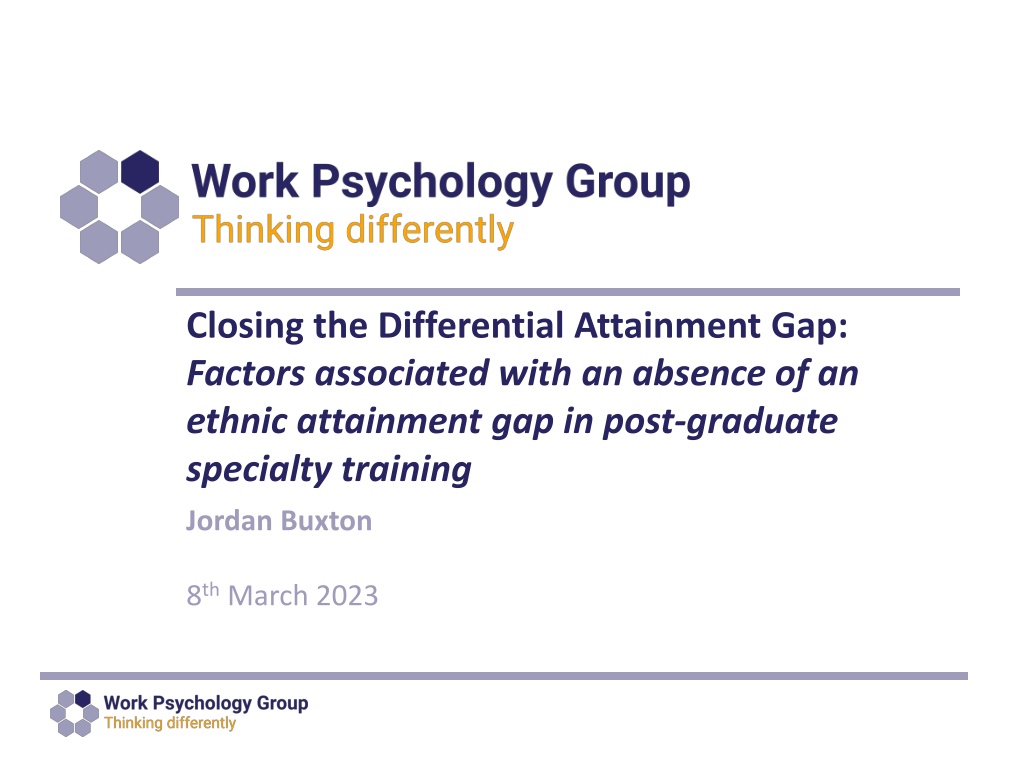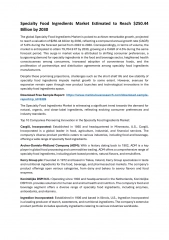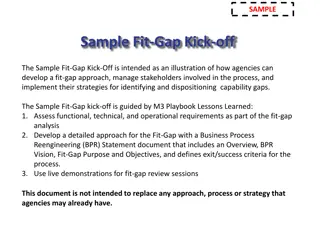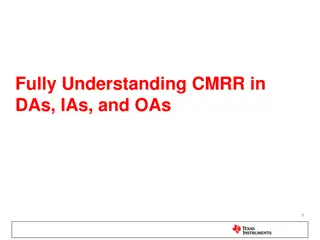Exploring Factors in Closing the Differential Attainment Gap in Post-Graduate Specialty Training
This research delves into the factors contributing to an absence of an ethnic attainment gap in post-graduate specialty training. It highlights the complexities and impacts of the attainment gap, aiming to identify key factors for fairer training pathways, ultimately aiding in reducing observed differences in attainment levels across specialties and programs.
Download Presentation

Please find below an Image/Link to download the presentation.
The content on the website is provided AS IS for your information and personal use only. It may not be sold, licensed, or shared on other websites without obtaining consent from the author. Download presentation by click this link. If you encounter any issues during the download, it is possible that the publisher has removed the file from their server.
E N D
Presentation Transcript
Closing the Differential Attainment Gap: Factors associated with an absence of an ethnic attainment gap in post-graduate specialty training Jordan Buxton 8thMarch 2023
Acknowledgments We would like to acknowledge the GMC, along with other members of the Work Psychology Group research team for support in the development of this content.
What is Differential Attainment (DA)? Differential Attainment: The gap between attainment levels of different groups of doctors. It occurs across many professions (GMC, 2023). It is evidenced across many intersecting characteristics; e.g. ethnicity, race, age, socio-economic status, gender, disability/neurodiversity (Fyfe et al., 2022). Despite various interventions, people from groups under-represented in medicine (e.g., ethnicity and/or low-income backgrounds) continue to experience disadvantage in selection. Reasons are complex and multifaceted, linked with societal issues such as ethnic inequalities, educational disadvantage etc. Outcomes include hindering performance in assessments, and learning experiences, resulting in limited diversity in the workplace and impacting overall patient care (Selvarajah et al., 2020). These issues are influenced by the local geopolitical context; therefore, we see the focus of DA varying internationally.
Discussion With those around you, introduce yourself. What is your experience of DA? What do you want to get out of the session today?
Overview This seeks to build on previous research from the GMC which focused on quantitative analysis, along with literature reviews, and numerous pieces of research by Kath Woolf to understand DA. Present key findings from a project with the GMC titled What supported your success in training? A qualitative exploration of the factors associated with an absence of an ethnic attainment gap in post-graduate specialty training Explore the causality behind DA to investigate what causes the success of trainees in specialties or locations that do not demonstrate DA.
What supported your success in training? A qualitative exploration of the factors associated with an absence of an ethnic attainment gap in post-graduate specialty training The GMC were interested in exploring the context of programmes or specialties with no significant DA between UK-Graduated White & UK-Graduated BAME doctors. The research goal was to identify any specific factorscommon to the identified programmes and specialties, which might contribute to fairer training pathways. Identification and assessment of such factors could then inform discussion about opportunities for further interventions designed to reduce observed differences in attainment across specialties and programmes. The work was concluded in October 2019 and the research published on the GMC s DA website: https://www.gmc-uk.org/education/standards-guidance-and-curricula/projects/differential-attainment/research
Sampling Strategy: GMC Datasets 75 specialties/specialty groups available to sample from Step 1: Include specialties with ARCP outcomes available for >10 LETBs and for >200 UK trained BAME trainees = 42 specialties Specialties which tend to exhibit high levels of DA Specialties which tend to exhibit low levels of DA Step 2a: Identify specialties that tend to exhibit significant differences (<33% of Exam outcomes are NS) =17 specialties Step 2b: Identify specialties that tend to exhibit non- significant differences (>66% of Exam outcomes are NS) = 13 specialties Purposive sampling with GMC to identify 28 individual training programmes to obtain interviewees from Questionnaire to obtain trainee volunteers and select breadth of interviews
Research Methodology Trainees in latter stages of specialty training From a breadth of areas/contexts currently in identified programmes with no DA Trainee interviews (30) Stakeholder interviews (18) From a breadth of areas/settings Representing Deaneries, LETBs and Colleges of identified programmes with no DA Literature Review Academic literature on DA Broader training & learning literature
High Level Findings Success Factors No clear pattern of the presence of success factors in the programmes or specialties of interest that differentiated them from other contexts. Trainees spoke about experiences ranging from medical school to the final stages of higher specialty training, across variety of rotations, contexts and settings. Analysis showed that specialties or programmes did not systematically differ from one another but did show consensus about the factors that help any trainee succeed throughout the entire pathway. 1. Valuing Diversity 2. Trainee as an Individual 3. Inspirational Seniors 4. Supportive Trainer 5. Peer Support 6. Work Arrangements 7. Maximising Learning 8. Career Clarity 9. Dealing with Training 10. Motivation and Drive Learning environment Who What
Success Factor 1: An inclusive workplace that values diversity A working environment where diversity in all senses (background, culture, experience) is visible and valued Learners felt inspired by colleagues that represented them at senior levels in the hierarchy. More diverse environments respected individual perspectives and valued diversity and valued diversity of thought. Leaners saw being able to work with other from similar backgrounds as a benefit ( they get it ). Concern about initiatives that target certain groups contributing to perspectives of in- group/out-group. Seeing yourself represented is a really important thing. [It] feel like you re on a level playing field to start with (Learner) When you work with a very diverse group of people, the cliques and clubs that form aren t necessarily based on colour or class. It feels more based on who you are as a person, your life experiences. (Learner).
Success Factor 2: Treating learners as individuals Recognition that an individual s background and experiences in and outside of work will meaningfully impact progression through training, providing required support where necessary The importance of being treated as an individual. This factor is particularly important when things are tough for learners, it was more commonly mentioned when learners spoke about overcoming hurdles in training. Leaners spoke about personal challenges during training, and how these maybe acknowledged by trainers (e.g. relocation) as well as gaps in practical support on these topics. Learners feeling comfortable to ask for support. Once I requested annual leave to take my daughter to the doctors as the appointment was the same time as work. She [my consultant] said Well make sure you organise your clinic for that day, come in, do what you have to do and then leave. You don t have to take the whole day as annual leave . It makes you feel like this organisation is really thinking about me, so I want to give my best in return (Learner). Any doctor, you do need somebody to reach out to them, because it's unlikely that they will come to ask for help, and there's always a bit of a reluctance for that boundary to be crossed. (Learner)
Success Factor 3: Working with inspirational senior colleagues Access to senior colleagues who act as informal role-models, mentors or career coaches to help learners access opportunities and develop The opportunity to benefit from the positive influence of a senior colleague in day-to- day work (especially when they provided information on their own career with no agenda ). These colleagues provided inspiration for the type of doctor I want to be , and also commonly had very high expectations. Beyond the supervisor role, offering more of a safe space for learners. She was someone who was very much interested in everyone... she was interested in talking about her specialty and advocating for her specialty, that resonated strongly with me (Learner). [Some] consultants go out of their way to help learners find sponsorship and alternative career paths. But I don't think it's a formal job they have, it's just their personality makes them approachable. I think it's unrealistic to expect anything better [from others] (Learner).
Success Factor 4: The supportive trainer or supervisor Trainers and supervisors who encourage and support learners in the workplace with their development The importance of effective and supportive supervisors/trainers; providing feedback on clinical and professional skills. Open and honest relationships with trainers, who support learners overcome anxiety and low confidence, helping them to reframe challenging experiences. Even though learners were motivated to solve own issues, it was helpful to have more direct support. always having had supportive supervisors in my current training programme has been really, really helpful. I ve struggled a lot, actually, in the last two to three years with exams, and without their support, understanding and patience, there s no way I would have been able to continue to the point that I m at (Learner). He gave me guidance throughout he knew my circumstances and he did everything he could to strengthen my application to help me But it was a little pep talk that he gave me that really [helped] (Learner).
Success Factor 5: Having the support and validation of peers Accessing a network of peers who can improve learning, make sense of experiences and provide advice and guidance on the practicalities of training The importance of spending time with peers of the same or similar stage of training, throughout medical school to higher specialty training. The provision of mutual support amongst peers was critical, this supported with motivating each other as well as exam preparation, and sharing knowledge and experiences. This varied between established settings where invaluable signposting could occur, or via formal buddy systems. Other learners noted that peer networks risk becoming insular and encouraging one way of thinking , therefore it can be supportive to gain other inputs. Being conscious of the need to be flexible as the needs of learners change. What would have helped?] Having a really good support network of peers who understand where you're coming from and your background, because I've certainly found I often related better with people who were not necessarily graduates from the UK [than with my UK peers] (Learner). I've met colleagues who now I rely on as mentors, who are a little more senior than me and nearing the end of their training, and they've been helpful in giving some near-peer coaching, a bit of a career heads-up. It's someone else watching your back, giving you tips which you would have to learn the hard way otherwise (Learner).
Success Factor 6: Working arrangements that facilitate learning Shifts, rotas and work structures that support learners to build meaningful relationships with team members and dedicate time to learning The working arrangements learners were situated in whilst learning, and how these were more or less conducive to learning as a result. Protected time for training, or the lack thereof was consistently mentioned. This happened via set training days/hours, mandatory courses etc. The influence of senior doctors in the department who took advantage of any opportunity for learning, especially in environments where time to learn was limited. Having the opportunity to build relationships with the wider team. Challenges with speaking up if the work environment was not supporting their learning. I felt I could ask them all [consultants, registrars, nurses] anything. I was never scared, I think [that] is the main thing, to ask questions and I never felt like I was going to be shouted at, which yeah, so that I think really helped with, me enjoying [that job] (Learner). It was a good working environment. The rotas were tough, there s no denying that, I don t think there s any way you can avoid that. But the nurses and consultants and team were supportive, it was a good team. (Learner).
Success Factor 7: Maximising the value of learning Ensuring learning at work and in training is valuable, holistic and helps inform career choices Opportunities to maximise the value of learning , i.e. the particular aspects of a job, rotation or programme that allowed them to feel it had been a valuable learning experience. Learners also explained having clarity about critical learning objectives in any context was helpful to ensure they could self-manage and pursue the right opportunities for valuable learning experiences. Within Foundation and Core programmes, organisation of rotations and exposure to required events/cases as a result was often problematic. Concern about the risk of negative responses when learners raised issues with rotations or environments providing poor learning experiences. Here, we have the flexibility to choose the jobs we feel are helpful, and I picked quite challenging jobs but ultimately, I think that helps me learn a lot. So, I think that s helped with my clinical progression as well (Learner) I asked my Foundation School if I could swap one of my jobs I felt that I was just getting too much of the same after three rotations in geriatrics. They just said, no , straight away and there was no debate about it It made me as a junior trainee feel completely undervalued.. (Learner).
Success Factor 8: Gaining clarity, certainty and support for career choices Accessing experiences, knowledge and learning and development opportunities that support informed decisions about career choices or next steps A support factor was help received for learners to navigate the broader career pathway, supporting them to commit and progress within a chosen career path. Learners spoke about being prepared to be flexible and take a different route to help increase certainty about career choices. Learners who had doctors in the family spoke about this as providing insight into the field that gave perspective and helped navigate training and decisions. It could be difficult to obtain guidance on career progression or relevant opportunities if supervisors did not have experience of the relevant area of medicine. Negative experiences were demoralising and could have a longer-term impact on personal confidence and self-efficacy. I think if you don t come from a certain medical family, you don t have people who might be able to steer you, it can be quite difficult to know how to succeed (Learner). It s about being given permission to be who you are and who you want to be. It was just really helpful to have somebody above you give you the freedom to make a different decision to what everyone else was telling me you should do. (Learner).
Success Factor 9: Support to pass exams or deal with exam failure Being prepared and supported to navigate the process of completing challenging professional exams Learners commonly reflected on support relating to success completion of exams (mainly postgraduate). A common source of support was in preparing for exams, such as attending courses to support exam techniques or skills (e.g. communication). Of all the factors identified as aiding a successful training journey through training, this one was the one where learners spoke least about useful sources of support. The impact of challenging exams, and the very real impact this had on them at work and the psychological pressure preparing for challenging exams on top of tiring and pressurised shifts at work. Reflected on culture shock of dealing with failures after passing most medical school exams. Learner differed in how they made sense of these failures. Having such a challenging exam, it does highlight some of the problems that you might face in a clinical situation, your psychological coping mechanisms [and other things]. It s definitely made me stronger and know the kind of help I need to get if anything else happens in future but these exams are a real struggle, very difficult (Learner).
Success Factor 10: Personal motivation and drive Drawing on personal commitment, drive and motivation to succeed in training An individual learner s personal motivation, drive or enthusiasm for their training and career, including the value of showing this enthusiasm. Learners also felt it was worthwhile investing time in understanding what they wanted out of work and incorporating this into decisions about what opportunities to pursue. Some learners that made reference to their personal circumstances meaning they had to be very driven to achieve to a high enough standard that they could get jobs or placements in more competitive area that s where I got that experience from, you ve just got to go out of your way to find it. That enthusiasm, but also attending all the meetings with the multidisciplinary team, just getting involved with things in the ward, helping out on the ward, I think it s just getting yourself more involved completely (Learner)
Results: What helps trainees succeed? How can trainees, educators, employers and Colleges work together to maximise these factors during training?
Application in Practice in Wessex Based on Wessex outcome data, four specialties were selected GP, Psychiatry, Paediatrics, and Emergency Medicine to look at the application in practice. Methodology: Literature Review (specialty specific) and Interviews (with trainers/ trainees/professional support unit) were conducted. The outcomes were a practical tool for trainers, to support discussions between supervisors and trainees and identify trainees that are potentially struggling. Final Framework Trainee Background Personal Trainee Background Work/Educational Support from others: Senior Colleagues Mentors etc. Peers Opportunities for Learning Career Preferences/Awareness Exams
Report and resources Report on GMC Research page Other resources Case studies and experiences shared https://www.gmc-uk.org/education/standards- guidance-and-curricula/projects/differential- attainment/experiences-shared Report on metrics to consider when evaluating the impact of interventions https://www.gmc-uk.org/-/media/documents/gmc- differential-attainment-final-report-13_08_18- 76652679.pdf Practical guide to evaluating interventions https://www.gmc-uk.org/education/standards- guidance-and-curricula/projects/differential- attainment/practical-guide-to-evaluation
Discussion For those who have been involved in this structure, how has it gone and how best can we evaluate these interventions? For those of you who have not been involved, what are your thoughts on the findings, and any potential next steps?
Take Home Messages This research is part of the ongoing process of understanding the practical application of interventions addressing DA. It contributed to the existing work in the area by going beyond quantitative analysis to include qualitative perspectives, as well as reversing the perspective by looking at an absence of DA. The findings are still very relevant, and support in combatting the myth that certain specialties or locations have one specific thing ( the magic bullet ) that makes a difference to DA. Overall, DA is systemic with similar issues are seen across different professions (policing, judicial, etc.). A final consideration is that this research took place a number of years ago - it would be great to hear of any potential changes since.
Thank You & Questions? J.buxton@workpsychologygroup.com























